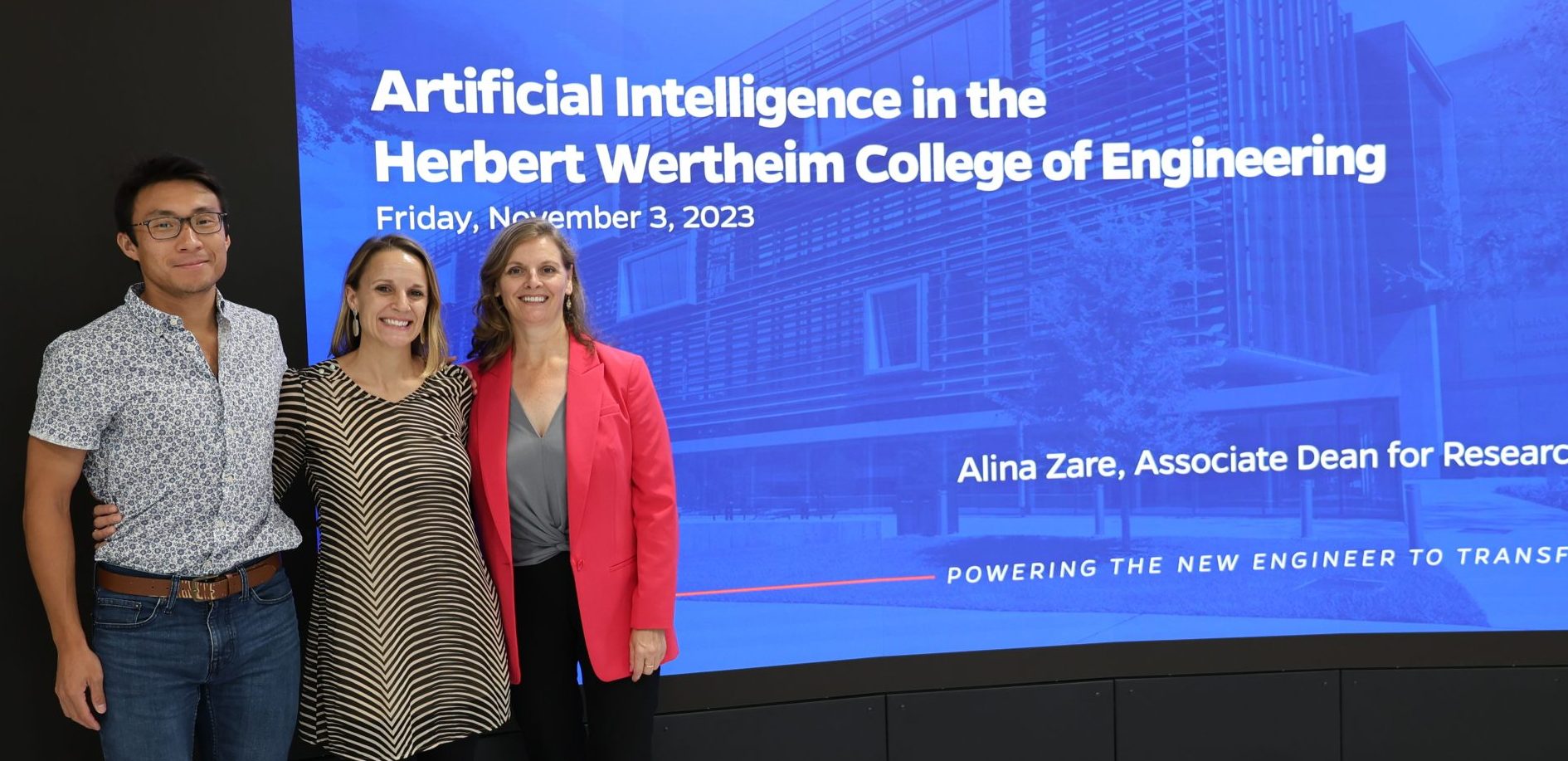At a rainy opening of the Malachowsky Hall for Data Science and Information Technology on November 3, staff from the UF Center for Coastal Solutions (CCS) shared some of the ways they are capitalizing on artificial intelligence (AI) to help keep Florida’s coasts healthy and livable for future generations.
The ultra-modern, $150-million, 263,440 square foot space, is a landmark of the collaboration between UF alumnus and donor Chris Malachowsky, co-founder of NVIDIA, and the University of Florida, and will serve as a hub for research and innovation in medicine, pharmacy and engineering.

“As someone who has come to incorporate data science and machine learning into their research, it is exciting to see UF’s efforts to expose students to an endlessly fascinating topic, especially through investments like Malachowsky Hall and the HiPerGator,” said Nick Chin, a Ph.D. student in the environmental engineering sciences department.
CCS Director Christine Angelini highlighted the center’s AI-powered red tide detection system, research underway to identify root causes of red tide and a modeling system that is being built with the U.S. Army Corps of Engineers to reduce the severity of harmful algal blooms along the coast. This system is being upgraded with experts from through the NVIDIA AI Tech Center to run on the University’s supercomputer HiPerGator AI SuperPod, built with a $50 million donation from Malachowsky/NVIDIA, and will have the power to simulate hundreds of ‘what if’ scenarios simultaneously. These and other projects using AI were highlighted during tours of the new building and represents the University’s ambitious plans to leverage AI to make positive impacts on the country’s economy and improve security.
“UF is giving students and faculty more tools and opportunities to move the needle than we’ve seen in a generation,” said UF President Sasse. “In a space designed to fuel breakthroughs and boost multidisciplinary collaboration, this building is a critical component of UF’s push to build one of the most forward-thinking and comprehensive research and teaching institutions of our time.”